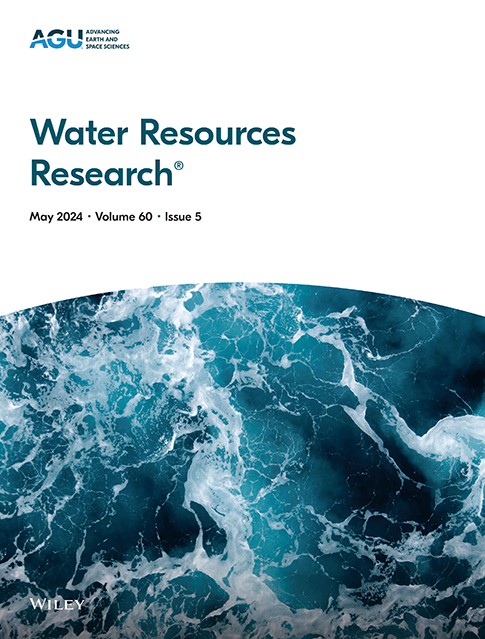WRF-Hydro参数估计的集成方法
IF 4.6
1区 地球科学
Q2 ENVIRONMENTAL SCIENCES
引用次数: 0
摘要
WRF-Hydro水文模型在过去的许多应用中都得到了应用,其中大多数研究都有一定程度的历史匹配。在本研究中,我们使用了迭代集成平滑(iES),这是一种在开源pest++软件中实现的强大参数估计方法。iES提供了一个具有不确定性范围的综合解决方案,而不是以往WRF-Hydro研究中常用的单一最佳估计方法。我们讨论了考虑观测噪声的重要性,它会导致模型解中更广泛的传播。我们研究了通过对观测值进行差分加权来调整模型响应以适应特定应用的模型输出的目标函数的影响。结果证实了在计算目标函数之前对观测值进行差分加权的必要性,因为优化算法在计算参数更新时存在均匀加权的困难。我们还表明,当目标函数调整到极端事件很重要的应用程序时,我们在验证度量方面获得了更好的模型性能,并且更加强调高流量事件。然后我们研究了估计更多参数的影响,特别是我们估计了更多的雪参数。结果表明,该模型的性能有了很大的提高。总之,我们的研究证明了将iES与观测值的差分加权结合使用的有效性,突出了其增强水文模型参数估计的潜力。本文章由计算机程序翻译,如有差异,请以英文原文为准。
Ensemble Methods for Parameter Estimation of WRF-Hydro
The WRF-Hydro hydrological model has been used in many applications in the past with some level of history matching in the majority of these studies. In this study, we use the iterative Ensemble Smoother (iES), a powerful parameter estimation methodology implemented in the open-source PEST++ software. The iES provides an ensemble solution with an uncertainty bound instead of a single best estimate which has been the common approach in the previous WRF-Hydro studies. We discuss the importance of accounting for observation noise which results in a wider spread in the model solution. We investigate the impact of constructing objective functions by differentially weighting the observations to tune the model response toward model outputs appropriate for a specific application. Results confirm the necessity of differentially weighting the observations before calculation of the objective function as the optimization algorithm struggles with calculating parameter updates with uniform weighting. We also show that we achieve better model performance in terms of verification metrics with higher emphasis on the high flow events, when the objective function is tuned toward an application where the extreme events are of importance. We then investigate the impact of estimating more parameters, in particular we estimate a larger number of snow parameters. Results show a large improvement in the model performance. In summary, our study demonstrates the efficacy of employing iES alongside differential weighting of observations, highlighting its potential to enhance hydrological model parameter estimation.
求助全文
通过发布文献求助,成功后即可免费获取论文全文。
去求助
来源期刊

Water Resources Research
环境科学-湖沼学
CiteScore
8.80
自引率
13.00%
发文量
599
审稿时长
3.5 months
期刊介绍:
Water Resources Research (WRR) is an interdisciplinary journal that focuses on hydrology and water resources. It publishes original research in the natural and social sciences of water. It emphasizes the role of water in the Earth system, including physical, chemical, biological, and ecological processes in water resources research and management, including social, policy, and public health implications. It encompasses observational, experimental, theoretical, analytical, numerical, and data-driven approaches that advance the science of water and its management. Submissions are evaluated for their novelty, accuracy, significance, and broader implications of the findings.
 求助内容:
求助内容: 应助结果提醒方式:
应助结果提醒方式:


